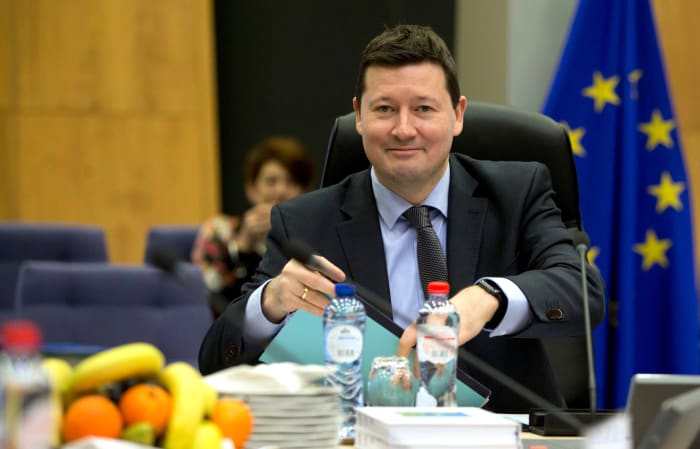Blood
EU rebukes its representative in Austria over ‘blood money’ comment on Russian gas imports
BRUSSELS – The European Union’s executive branch strongly criticized the bloc’s representative in Austria for accusing the country of paying “blood money” to Russia for gas supplies and said Friday he has been ordered back to Brussels.
EU representative Martin Selmayr said during an event on Wednesday that Austria continues to get 55% of its gas from Russia — but no one, he noted, is out on Vienna’s central Ringstrasse boulevard to protest that, the Austria Press Agency reported.
“That surprises me, because blood money is being sent to Russia every day with the gas bill,” Selmayr said, according to the report. He added that he understands energy supply problems, but that Austria is a rich country and could, like other nations, do without Russian gas.
Austria’s far-right opposition Freedom Party, which has led recent polls ahead of a national election next year, called on the government to demand Selmayr’s removal. On Thursday, Austria’s Foreign Ministry said that Selmayr had been summoned for a meeting with one of the ministry’s top officials.
In Brussels on Friday, European Commission spokesperson Balazs Ujvari noted that the EU has jointly agreed to cut gas imports from Russia and phase them out, and that Austria too has subscribed to this effort.
“Diplomacy is not just about content but it’s also about the right tone,” Ujvari said, adding that envoys to any of the EU’s 27 member countries “must weigh every word carefully, because they play an important role as trusted messengers between us and the host government.”
“The choice of words by the head of our representation in Austria was not only unnecessary but also inappropriate,” he said. He added that Selmayr has been called back to Brussels to have a discussion with the EU hierarchy.
Selmayr was a protege of former Commission President Jean-Claude Juncker and rose to become a powerful behind-the-scenes figure in Brussels when Juncker ran the EU executive between 2014 and 2019. The German native is a lawyer by training.
Even as Selmayr’s comments drew criticism, Austria’s energy ministry acknowledged that the country is still using too much Russian gas, APA reported.
It said that Austria got about 80% of its gas from Russia before the war in Ukraine started last year and has reduced that, with Russian pipeline supplies accounting for an average 50% of gas imports between August last year and July. It hopes to stop the use of Russian gas by 2027.

